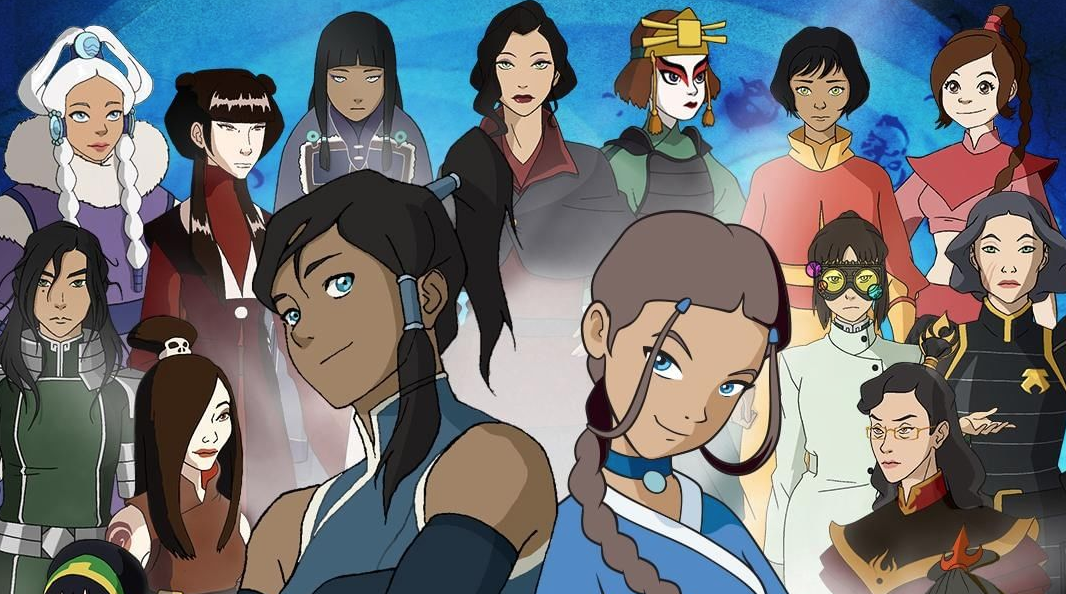Asians and Indigenous peoples are not interchangeable— and treating them as the same belittles the unique struggles of all groups involved.
I take immense pride in my passion for Avatar: the Last Airbender. Even though it may appear to be a lighthearted children’s cartoon, it was far more than that to a five year-old me. In a sea of television shows obnoxiously centered around white leads, I was enamored by the show’s eloquent portrayal of Asian and Indigenous cultures. And I’m not alone: following its addition to the Netflix streaming library, it has remained on the Top 10 streaming list for more than a month.
The animated television series, which ran on Nickelodeon from 2005 to 2008, follows Avatar Aang and his Water Tribe friends Katara and Sokka as he attempts to master all four elements while establishing peace between warring nations. From the onset, the show received positive reviews as the creators were unafraid to tackle themes of imperialism, misogyny, censorship, and genocide– topics that were often glossed over in kids television.
I think that one of the most impressive things of the ATLA universe is the sociopolitical drama. People should know that the reality is political and we can talk about that with the kids as well, they have questions about the world too. https://t.co/BILAAnx9mO
— Alexandrae.z (@Alexandrae_z) June 22, 2020
https://twitter.com/rockleefucker/status/1274920719403626497
With its recent release on Netflix, newfound fans are pointing out the show’s display of cultural richness, a rarity in a cinematic universe still led by white heroes and heroines: different elemental nations in the show serve as parallels to racial identities in the real world, with the Water Tribes, Fire Nation, Earth Nation, and Air Nomads being based off of Inuit, Japanese, Chinese, and Tibetan cultures, respectively.
https://twitter.com/nobodiebutyou/status/1274709568119951360
How Avatar: The Last Airbender took Inuit culture to create the Southern and Northern Water Tribes: A thread
— low arctic (@LowArctic) September 24, 2018
Fans hope that that same diversity will be preserved in the upcoming Netflix live-series reboot of the show. There is reason to be cautious— after all, the 2010 movie adaptation of the series, The Last Airbender, led to widespread outrage as the roles of Aang, Katara, and Sokka were filled by white actors, prompting conversations about whitewashing in Hollywood.
How could I have forgotten that the Avatar movie cast two WHITE KIDS as KATARA AND SOKKA
THEY GOT THE FUCKING GUY FROM TWILIGHT pic.twitter.com/L5bLHpTZ6p
— midi (@midi_vt) June 24, 2020
With no roles in the live-action series being confirmed, fans are sharing their own thoughts on who should and shouldn’t be casted. Many insist on culturally appropriate roles being provided; historically, Indigenous peoples have been ignored in Hollywood, comprising less than 0.5% of film roles in 2016 according to a UCLA study.
One TikTok from user @jessicagenadry — a Vietnamese woman — sparked broader conversations about the importance of racially-appropriate castings. In the TikTok, the user proposes that she should be casted in the live action movie, primarily for three reasons: she has experience in acting, she is knowledgeable about Shaolin Kung Fu, and she “is actually Asian; Vietnamese, to be specific.”
https://twitter.com/raccorns/status/1274002773210693634
The video, which has garnered over 10 million views and 3 million likes, has polarized viewers who dispute the conflation of Katara’s Inuit identity into an Asian identity. Reaction to the video has been ambivalent— comments range from “I never seen anyone more perfect than you” to “native americans barely have an representation as is.”
In one response, Tiktok influencer Andi Miranda duetted the video saying that Katara is “meant to be Native” and that “races are not interchangeable.”
I take issue with how the user generalizes Katara’s Inuit identity into an Asian one. In a broader context, conflating two vastly different racial identities serves to diminish the barriers that Indigenous people have faced in Hollywood— whether it’s the primitive Inuit stereotypes portrayed in North (1994) or racist caricatures of Native American tribes in Peter Pan (1953). It maintains a centuries-long legacy of exclusion, stereotyping, and discrimination in media.
Asians and Indigenous peoples are not interchangeable— and treating them as such belittles the unique struggles of all groups involved.
People of color have all faced distinct structures of racism with regards to healthcare, police brutality, stereotyping and more. As protests continue across the country to call out police brutality against Black people, Asian-Americans are acknowledging the many aspects in which their communities are not policed as heavily and brutally as Black communities.
BIPOC have different struggles, and it’s imperative to recognize that. Indigenous peoples have long faced dangerous and inaccurate caricatures and their diverse stories are still neglected in Hollywood.
The generalization of Inuit identity into Asian identity hearkens back to Hollywood’s still-prevalent history of whitewashing, in which white actors are cast to play roles meant for people of color whether for reasons of insensitivity or audience approval. It’s a painfully cringy practice. From the critically panned whiteness of The Last Airbender to Tilda Swinton’s role as a Tibetan monk in Doctor Strange, whitewashing is outdated and deprives minorities from the sense of normalcy and belonging that representation provides.
In the same way, casting an Asian actor for an Inuit role would solidify the lack of representation of Indigenous people in Hollywood; casting an Inuit actor for an Inuit role would set a precedent for Indigenous representation in Hollywood.
I urge the creators of the live-action series to feature Indigenous people both on and off the screen— in acting roles, in writing roles, and in directing and producing roles. Now is the time to upset antiquated traditions of exclusion in film.
Featured photo via Instagram












